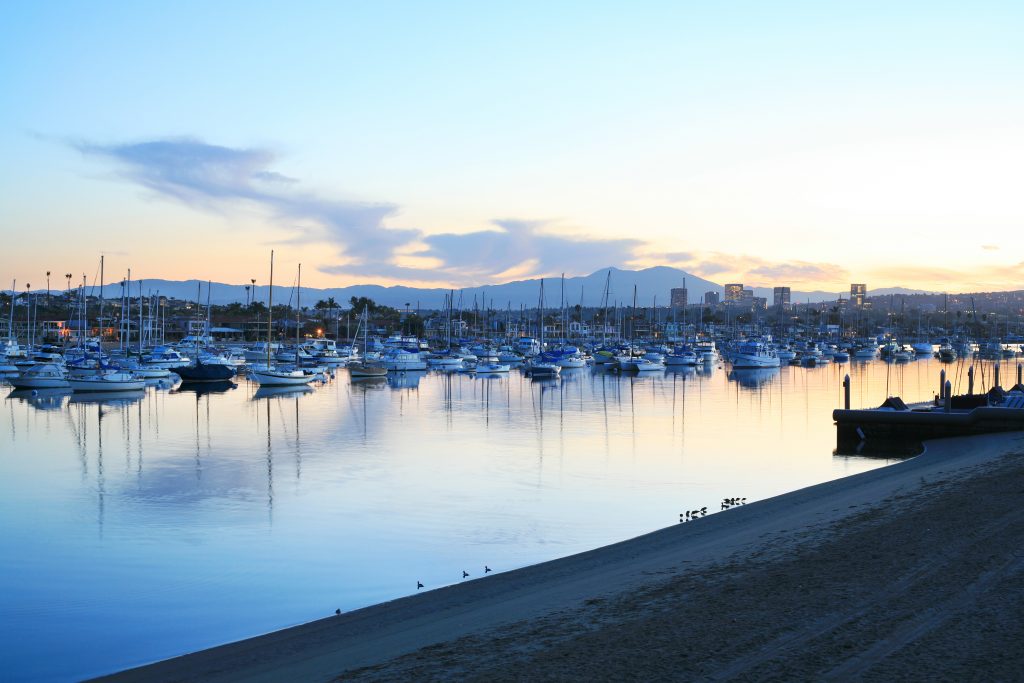
- Select a language for the TTS:
- UK English Female
- UK English Male
- US English Female
- US English Male
- Australian Female
- Australian Male
- Language selected: (auto detect) - EN
Play all audios:
There were more questions than answers during a discussion about boarding vessels in Newport Harbor and testing sanitation systems with dye tabs at a Harbor Commission meeting this week.
City staff asked commissioners on Wednesday to provide input and recommend possible code changes to give the city or its designee authority (Orange County Sheriff’s Department Harbor Patrol)
the right to board vessels in the harbor for the purpose of marine sanitation device inspection by dropping in dye tablets. After much discussion, during which several concerns were raised
and a number of questions were asked, commissioners asked staff to work out the language and details of it and bring it back to them, hopefully in July. Harbor Resources Manager Chris Miller
said the idea is an effort to improve water quality and to increase public awareness of Newport as a no-discharge harbor. “We want to make sure that they know that Newport is a ‘no
discharge’ harbor and we want to make sure that their Y-valve is closed,” Miller said. “They might not know the rules.” There have been times when boaters have dumped their holding tanks
into Newport Harbor, Commissioner Doug West said. “Anything we can do to create a deterrent effect I think is good,” he noted. Dye tabs have been discussed several times at recent Harbor
Commission meetings, mostly coupled with the temporary anchorage project but the general intent of the commissioners was to broaden the discussion to include other boats. “Now that doesn’t
mean all boats would be boarded as they coming in the harbor,” Miller said. “But it gives the Harbor Patrol the authority to board vessels, as applicable.” Commissioner Bill Kenney was one
who has brought up the idea of dye tabs in the past. “What I’m suggesting and proposing is that we actually change the city’s municipal code to allow for the boarding of any vessel that’s in
the harbor – whether it be in the anchorage, whether it comes from outside, whether it’s at a mooring, or even if it’s at a dock – to drop a dye tablet,” if there is reasonable cause,
Kenney said. Carter Ford, a member of the board of directors of the Newport Mooring Association, was pleased to hear that law enforcement can only board with probable cause and that it would
apply all vessels. Ford, other public speakers, and commissioners agreed that it is important to be careful and specific with the wording. The language hasn’t been nailed down yet, Miller
said. “The language needs to be clarified and vetted through our legal resources,” agreed Harbormaster Lt. Mark Alsobrook. Harbor Patrol does not currently have the authority to board a
vessel to inspect the marine sanitation device without consent from the boat owner, he explained. Several people have also commented about their concern with the legality of the item.
Mooring permit holder George Hylkema asked that the language clarify the protocol if law enforcement boards a vessel and the owner is not aboard. It also needs to specify the compliant
sanitation systems, what boats require it and which don’t, and the circumstances required that would allow law enforcement to board. “If it’s just to put in a dye tablet then it seems to me
that every boater would be cooperative,” Hylkema said. “The ‘authority to board’ is, I think, the phrase that is, perhaps, alarming.” Commissioner Joe Stapleton agrees with the importance of
water quality, but they also have to be considerate of people’s privacy rights. “It’s a slippery slope,” Stapleton said. “We have to be very careful on how we write this.” The city
attorney’s office will review everything before it goes to Council, Miller emphasized. “I don’t think anyone is suggesting that we’re trying to create a mechanism or pretext for boarding so
that law enforcement can conduct a search of the vessel,” West said. “We’re talking about dropping dye tabs in the interest of preserving water quality.” Guidelines for boarding need to be
included, said Commission Chair Dave Girling. “I think we need to get it right, rather than expedite it,” Girling said. Kenney suggested adapting something similar to what the city of Avalon
has in place. Avalon officials do not consistently drop dye tabs in every boat that arrives in the harbor, West said. “You never know when it’s going to be your turn,” West said. “I think
it keeps the honest people honest.” Avalon started boarding vessels and using dye tabs after there was a documented problem, explained Commissioner Paul Blank. “To my knowledge, we do not
have a problem,” said Blank, who regularly reads the water quality reports. He is not aware of any problematic hot spots in the harbor related to coliform, a bacteria found in raw sewage.
“We don’t know if we have a problem, (so) I’m not sure why we would want to implement a solution,” Blank said.








